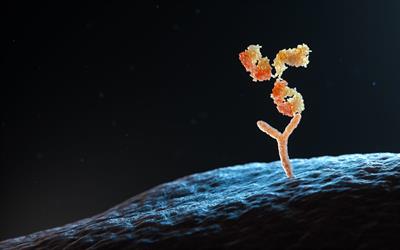sarah julia reiling
McGill University Health Centre
Montreal, Canada
10k
Total downloads
46k
Total views and downloads
Submission closed
The areas of research for this selection of scientific articles include basic science related to antibody-mediated immunogenicity, development of tests related to detection of antibody-mediated rejection (AbMR), reviews, as well as clinical studies on graft survival outcomes for transplant patients.
AbMR is one of the main causes of chronic allograft loss. While this is a concern for almost all donated organs, kidneys are especially prone to AbMR. With organ shortage issues, this becomes more relevant as everybody wants "a kidney for life" and losing an organ puts a patient back on the waiting list, often with less chances to find another suitable organ within a reasonable wait time.
Graft survival after solid organ transplantation depends on the balance between the immunogenicity of the allograft and the patient’s immune status. Other factors like immunosuppressive agents also play an important role in the acceptance and survival of the allograft. However, a large number of patients have difficulties with adherence to the medication, thereby risking the formation of DSA, which in the long term leads to irreversible AbMR.
On the graft’s cell surface are polymorphic human leukocyte antigens (HLA), which are recognized by the host’s immune system as “non-self”, leading to either an acute or/and a chronic immune response. This includes the production of donor-specific HLA antibodies (DSA), which may cause injury to the graft and ultimately lead to graft failure. However, the full spectrum of the biological effect of DSA is not completely understood. Until recent years, it was believed that DSA acted almost exclusively through complement activation but new studies include non-complement pathways (i.e., Fc receptor interactions and missing-self theory) as potential mechanistic effects. To date, most of the understanding of AbMR comes from research published in the setting of kidney transplantation and these lessons are often extrapolated to other solid organs without considering the unique immunological features of non-kidney organs. Novel studies on other solid organs may reveal new biological mechanisms that can build upon our current understanding of AbMR. Clinically, a better understanding of the wide pathogenic spectrum of DSA can help develop more targeted therapies for avoiding or mitigating the humoral alloimmune response and its effect on the allograft.
Furthermore, optimization and interpretation of Ab testing for clinical use is difficult. Analysis of current clinical assays require a high level of understanding of reaction patterns. Subsequently, interpretation varies between different health centers. Novel methods are required for assays that are more robust.
The goal of this research topic is to bring together articles related to AbMR in all solid organs. In the context of organ shortages, prolonging graft survival is crucial. This research topic will address current challenges and discuss future perspectives.
In this Research Topic, we will review what causes AbMR after solid organ transplantation. This includes both acute and chronic graft rejection. We will explore how transplant outcomes can be improved. We welcome emerging concepts on how graft failure can be prevented. We will also explore new immunology research focused on cellular responses that play a role in alloimmune recognition and desensitization strategies. We welcome authors to submit Original Research, Review, Mini Review, Perspective, and Clinical Trials articles focusing on, but not limited to, the following subtopics; excluding case studies.
• Basic immunology on the understanding of the immune system in sensitization and graft rejection
• Pathogenicity of DSA, including mechanisms of injury and various DSA characteristics
• Role of Non-HLA antibodies in AbMR
• Limitations, improvements, and new developments of clinical assays to test for HLA antibodies
• Non-invasive assays to monitor graft function and graft rejection (i.e., cfDNA, urinary markers).
• Development of novel assays for histopathological analysis of allograft biopsies
• Bioinformatic tools (e.g. for epitope / eplet analysis) to explore antibody immunogenicity, as well as their application in clinical studies
• Desensitization strategies and treatment options to prevent and treat AbMR after solid organ transplantation, including personalized protocols
• Novel approaches to organ allocation systems for more equitable distribution and/or prolonged graft survival based on ethnicity, immunogenicity markers, etc.
• Articles will focus on all solid organ transplantations including kidney, lung, heart, liver, intestine, pancreas, and vascularized composite allotransplantations
• We welcome articles related to AbMR in xenotransplants
The Topic Editors declare no competing interests with regard to the Research Topic subject.

Keywords: Transplantation, organ rejection, AbMR, AMR, donor specific antibodies, histocompatibility
Important note: All contributions to this Research Topic must be within the scope of the section and journal to which they are submitted, as defined in their mission statements. Frontiers reserves the right to guide an out-of-scope manuscript to a more suitable section or journal at any stage of peer review.
Share on WeChat
Scan with WeChat to share this article
